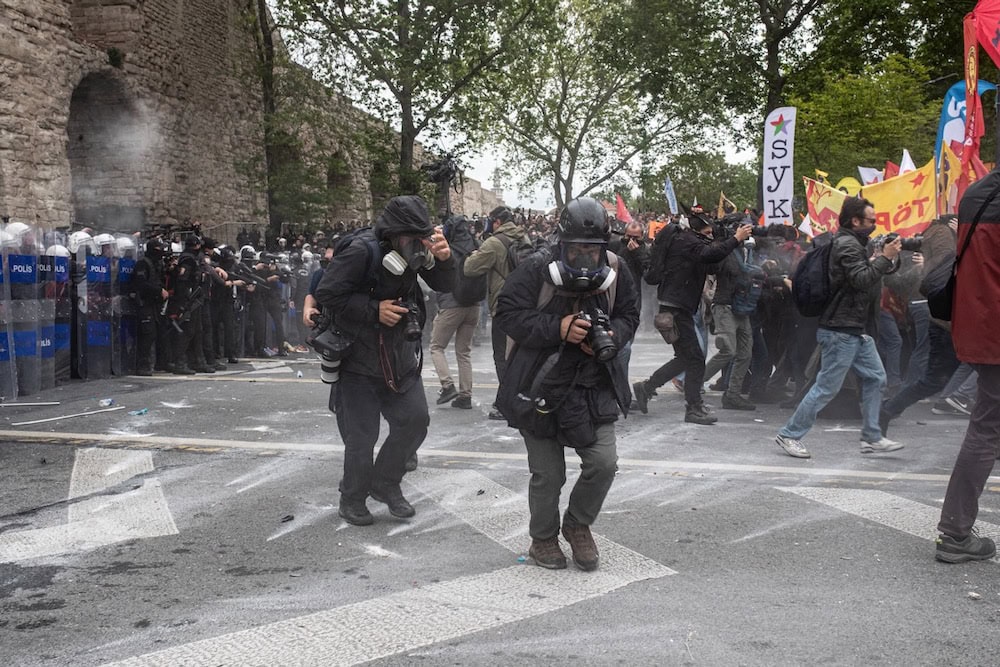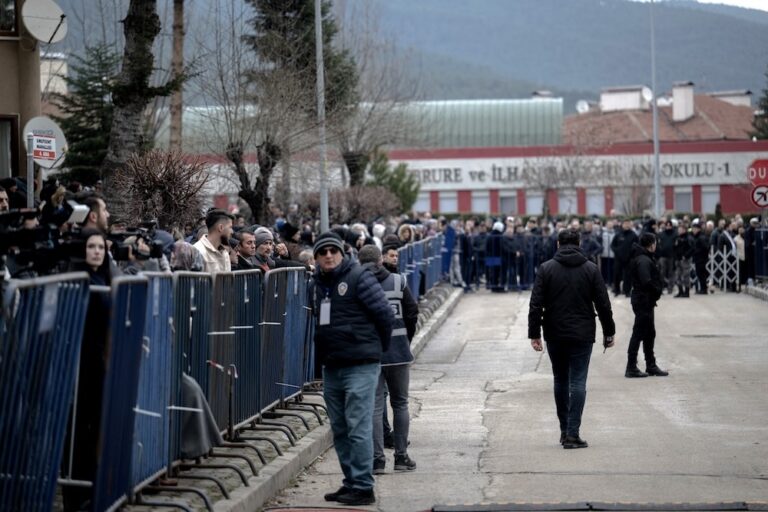"Police are legally obligated to protect field reporters, not obstruct them from performing their duty, but Turkish police routinely do the opposite" - CPJ
This statement was originally published on cpj.org on 2 May 2024.
The Committee to Protect Journalists calls on Turkish authorities to refrain from targeting media workers present during demonstrations, ensure journalists can continue to report on matters of public interest safely, and hold those responsible for attacks to account.
Amid bans on May Day celebrations, Istanbul police blocked a route in Istanbul’s Saraçhane district that leads to Taksim Square, deployed tear gas, fired rubber bullets, and detained hundreds of protesters participating in a march to the square and other locations, according to news reports. Journalists at the march site were also manhandled, subjected to tear gas, and police shot at least two reporters with rubber bullets in separate incidents.
“Police are legally obligated to protect field reporters, not obstruct them from performing their duty, but Turkish police routinely do the opposite. On May 1, police again used excessive measures against reporters, including brute force, tear gas, and rubber bullets,” Özgür Öğret, CPJ’s Turkey representative, said on Thursday. “Turkish authorities should stop these press freedom violations, investigate the May Day incidents, and hold those responsible to account.”
Fatoş Erdoğan, a reporter for critical outlet Dokuz8 Haber, told CPJ via messaging app that police shot her in the leg with a rubber bullet on the Saraçhane district road to Taksim Square, where authorities formed a blockade at the Valens Aqueducts, seen in a photo posted on X, formerly Twitter, by journalist Umut Taştan.
“We were [filming] with our eyes closed at the time due to [the police] spraying [tear] gas. I don’t know in this case if I was targeted with the bullet,” said Erdoğan, who was later forcibly removed from the yard of the Istanbul Metropolitan Municipality by the police, as captured on video. Erdoğan told CPJ that she would not be filing criminal complaints regarding the events of May 1, but she had made three previous complaints over similar incidents with law enforcement.
Taştan, a reporter for the critical outlet KRT TV, was shot in the foot with a rubber bullet at the police blockade in Saraçhane district, according to the nonprofit Media and Law Studies Association. CPJ was unable to reach Taştan for comment. The journalist last month also reported being hit with rubber bullets by the police in the eastern city of Van.
Istanbul’s riot police blocked routes to Taksim Square in other districts and prevented the press from working, according to news reports.
Police in the Beşiktaş district obstructed members of the media as officers took people into custody. A reporter for the critical Sözcü TV said in a live broadcast that she heard one police officer commanding others to “sweep the press.”
Celebrations in Istanbul’s Taksim Square have been historically significant for the leftists in Turkey, especially since the massacre of 1977, when unidentified people shot at the crowd, causing a panic which resulted in at least 34 dead and 136 wounded.
May Day gatherings were banned in Taksim Square following a military coup in 1980. In 2010, the ruling Justice and Development Party allowed Turks to celebrate May Day in the square for the first time in 30 years but then reinstated the ban in 2013. President Recep Tayyip Erdoğan has not allowed the public into Taksim Square on May 1 since then.
On Tuesday, Erdoğan said that Taksim Square was not a suitable location for political rallies and authorities would not allow “terrorist organizations” to exploit the opportunity for propaganda purposes. The human rights group Amnesty International criticized the ban as unlawful and Turkey’s Constitutional Court ruled that it violated the right to assembly.
CPJ emailed Turkey’s Interior Ministry, which oversees the police, for comment but did not receive a reply.



